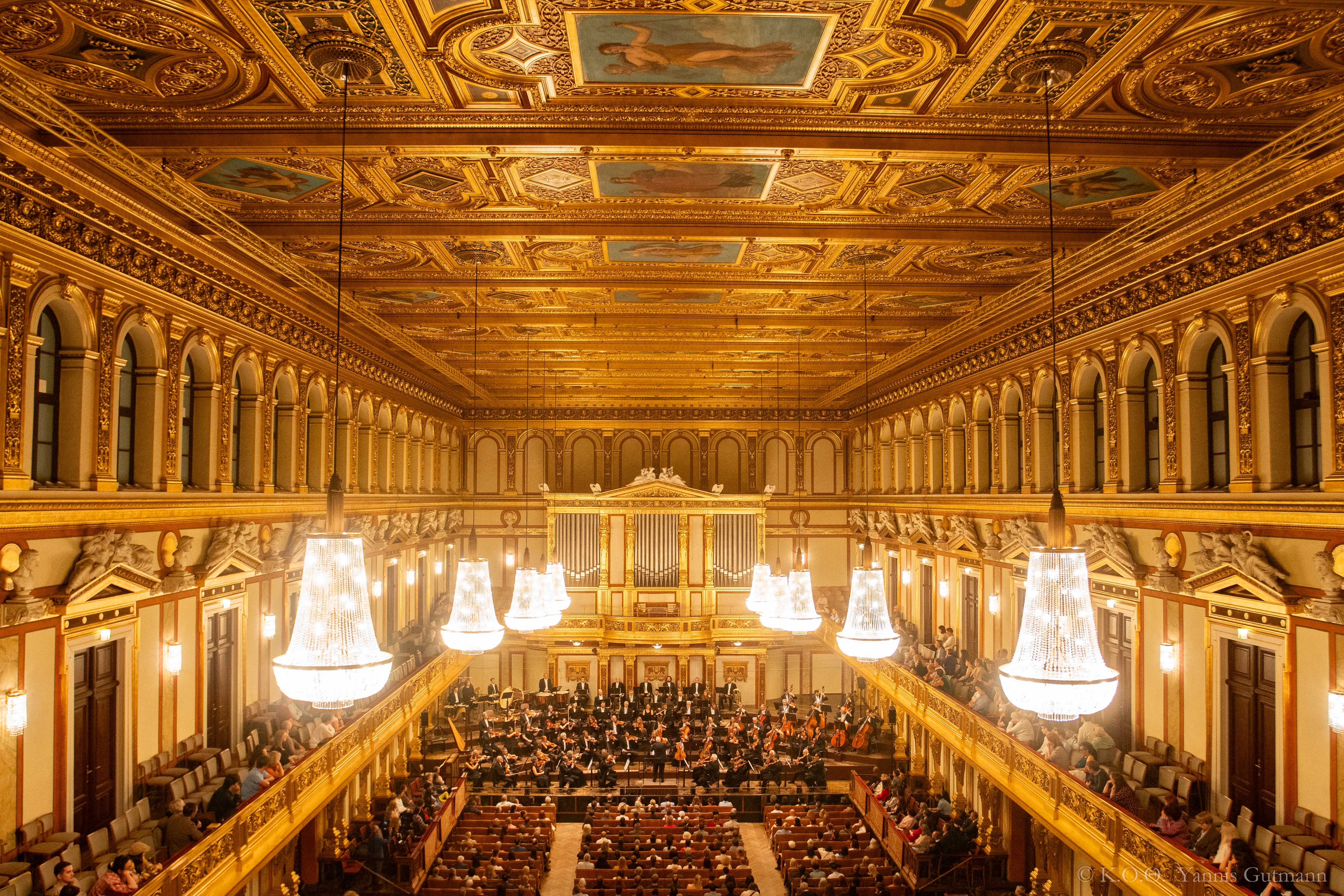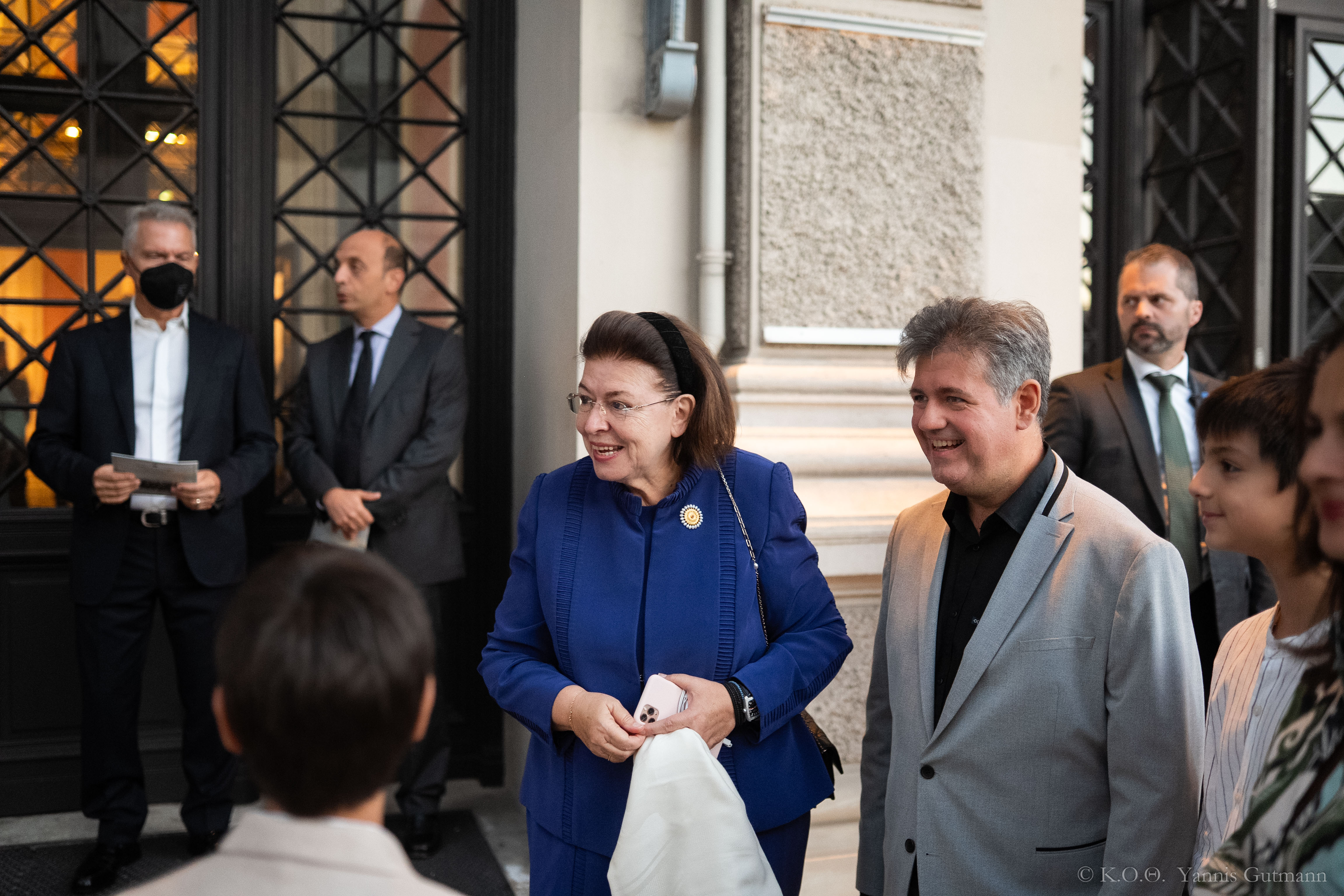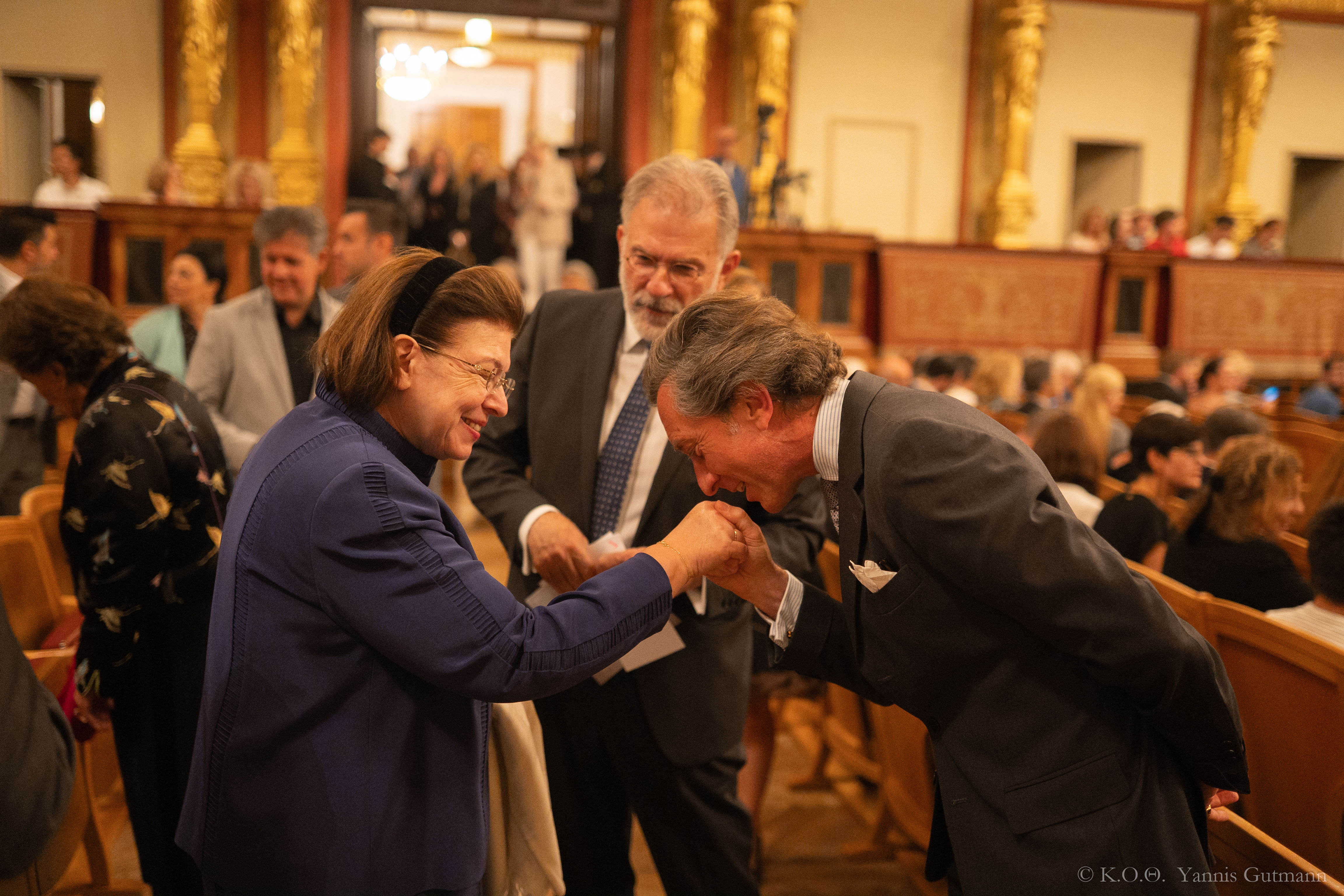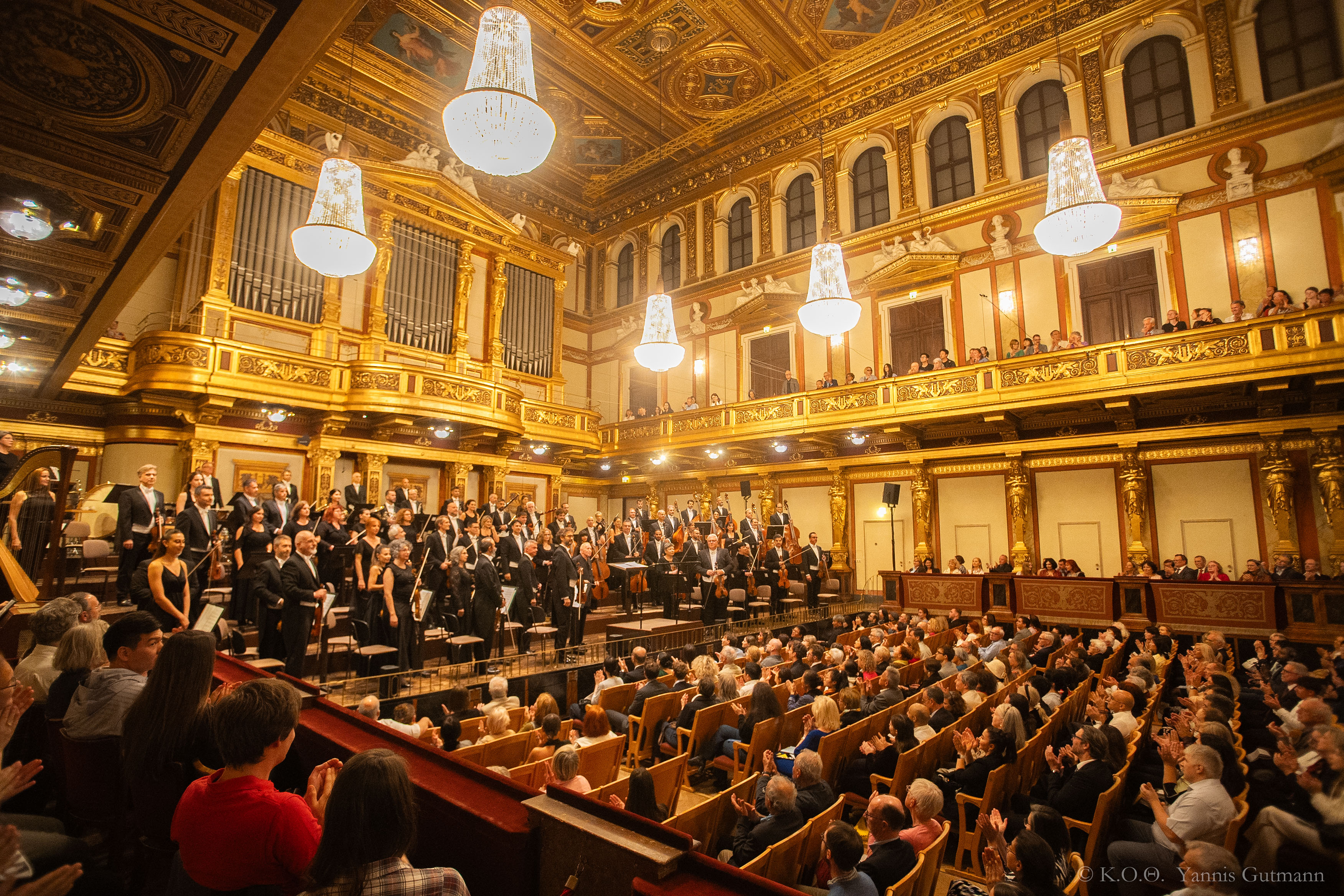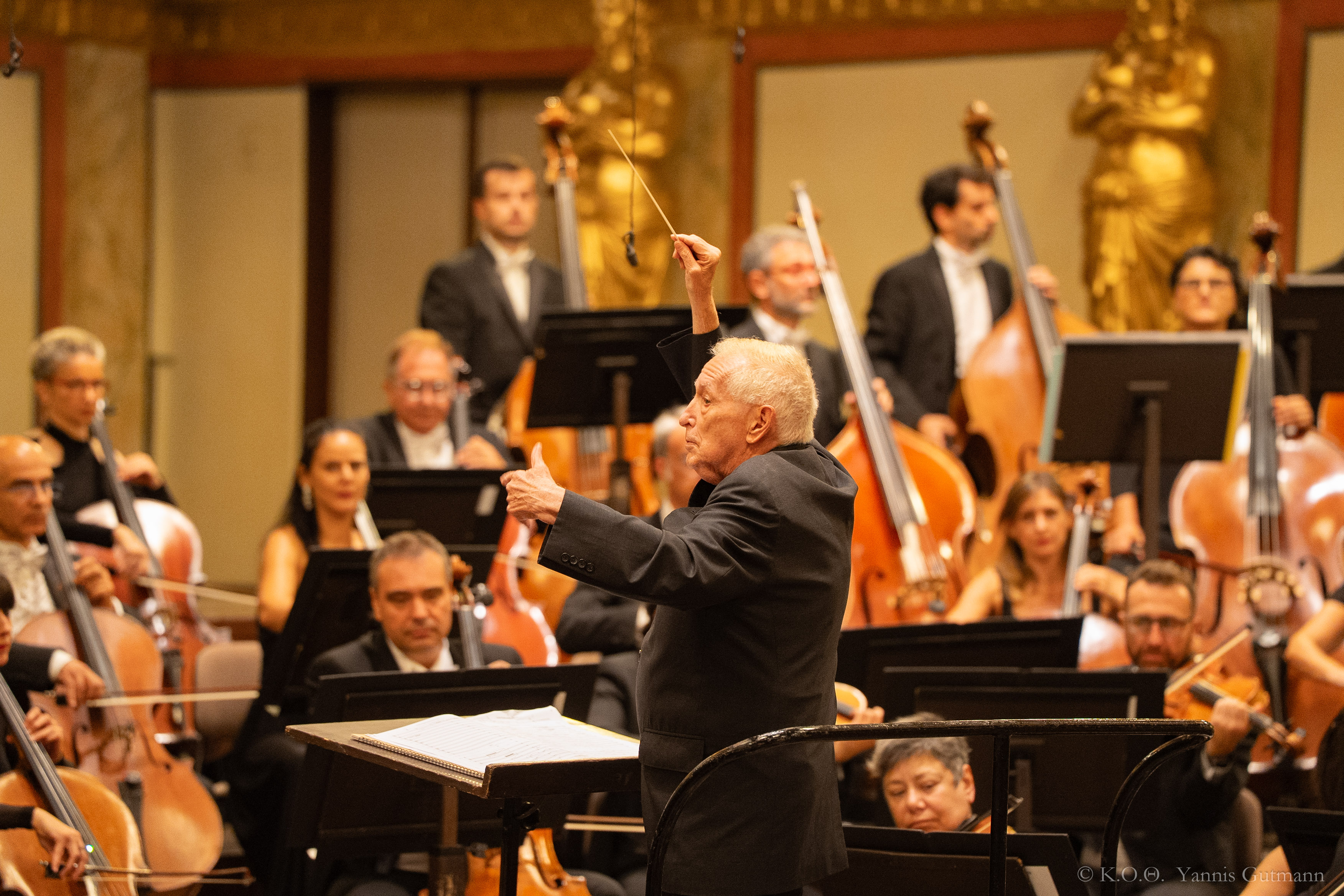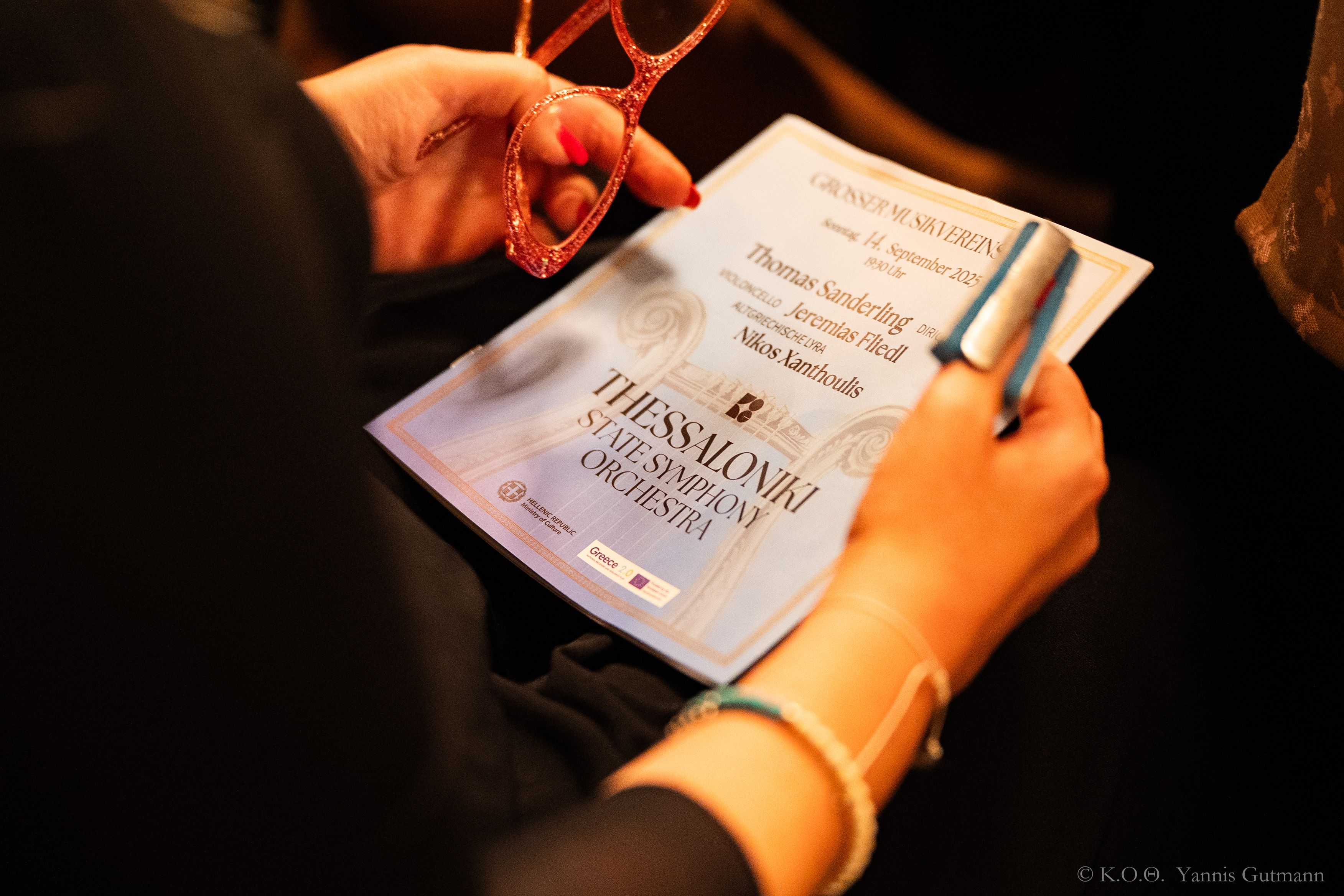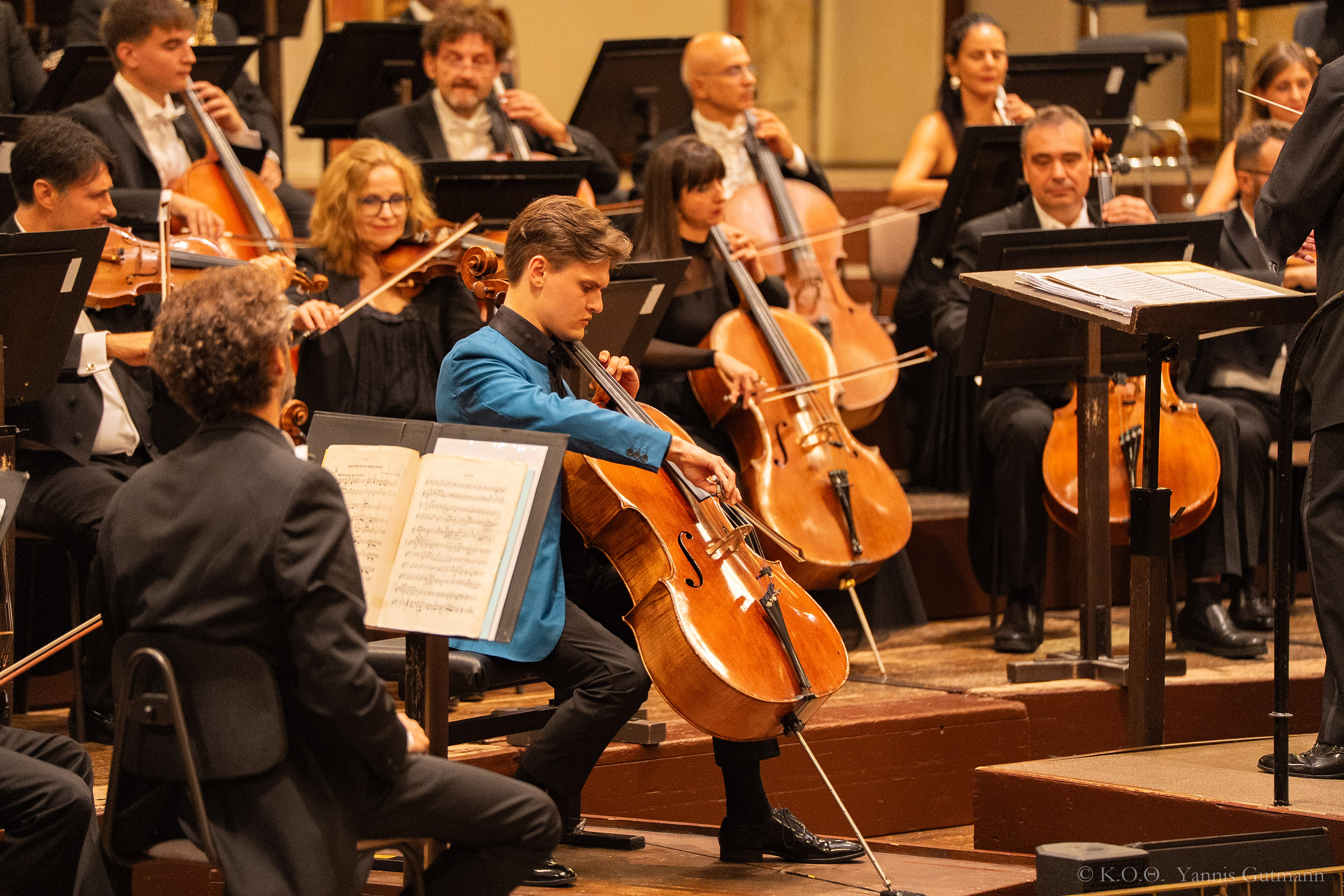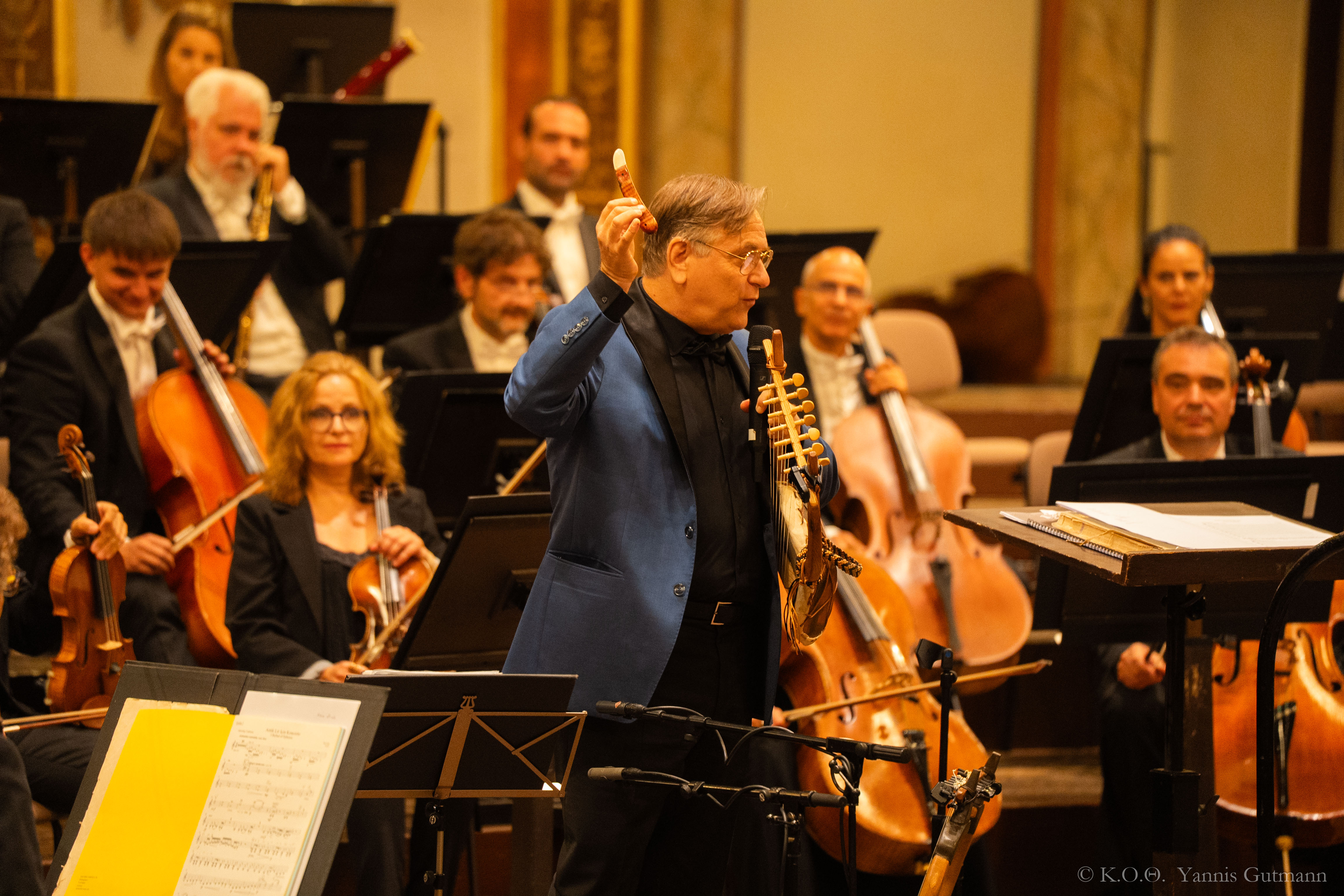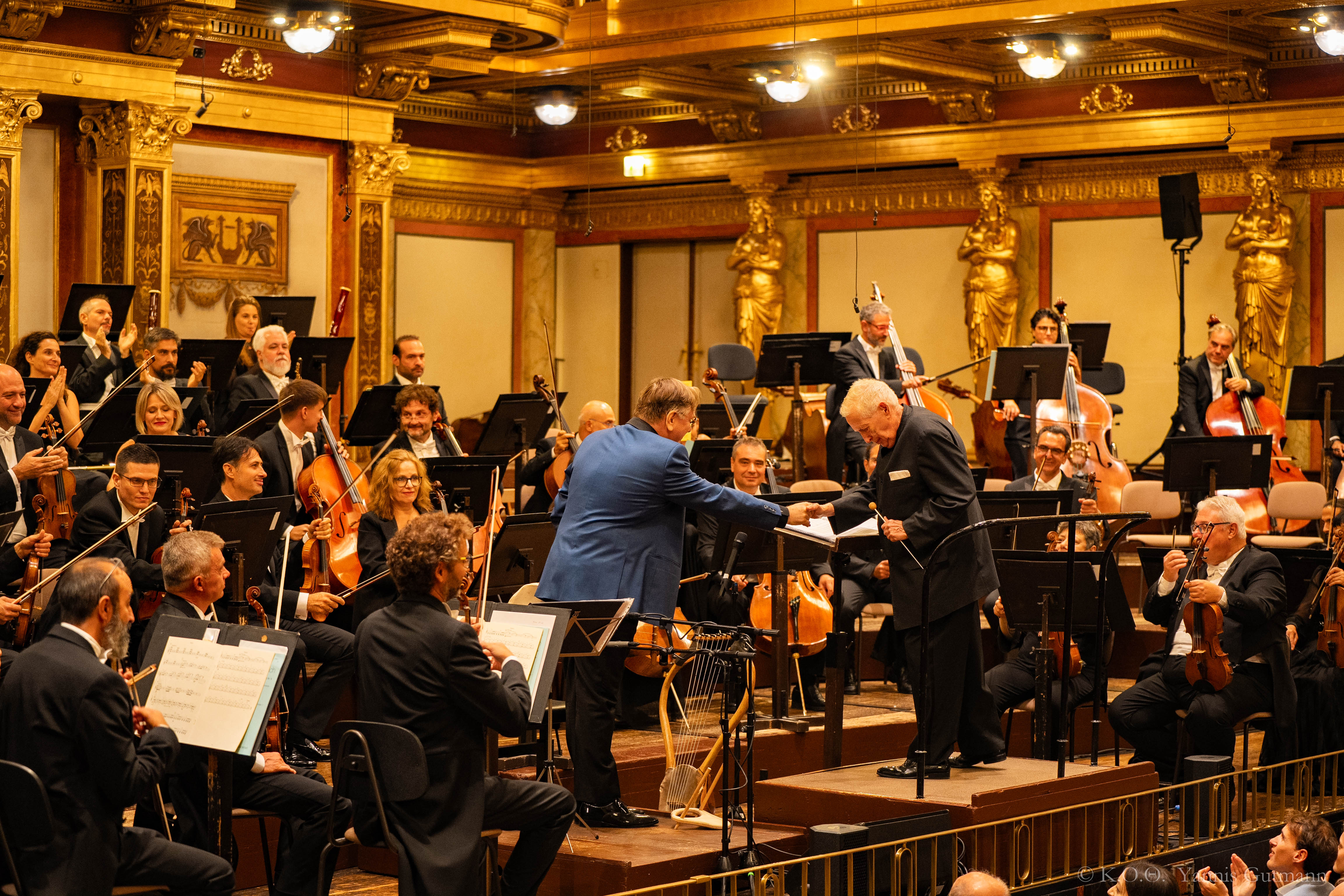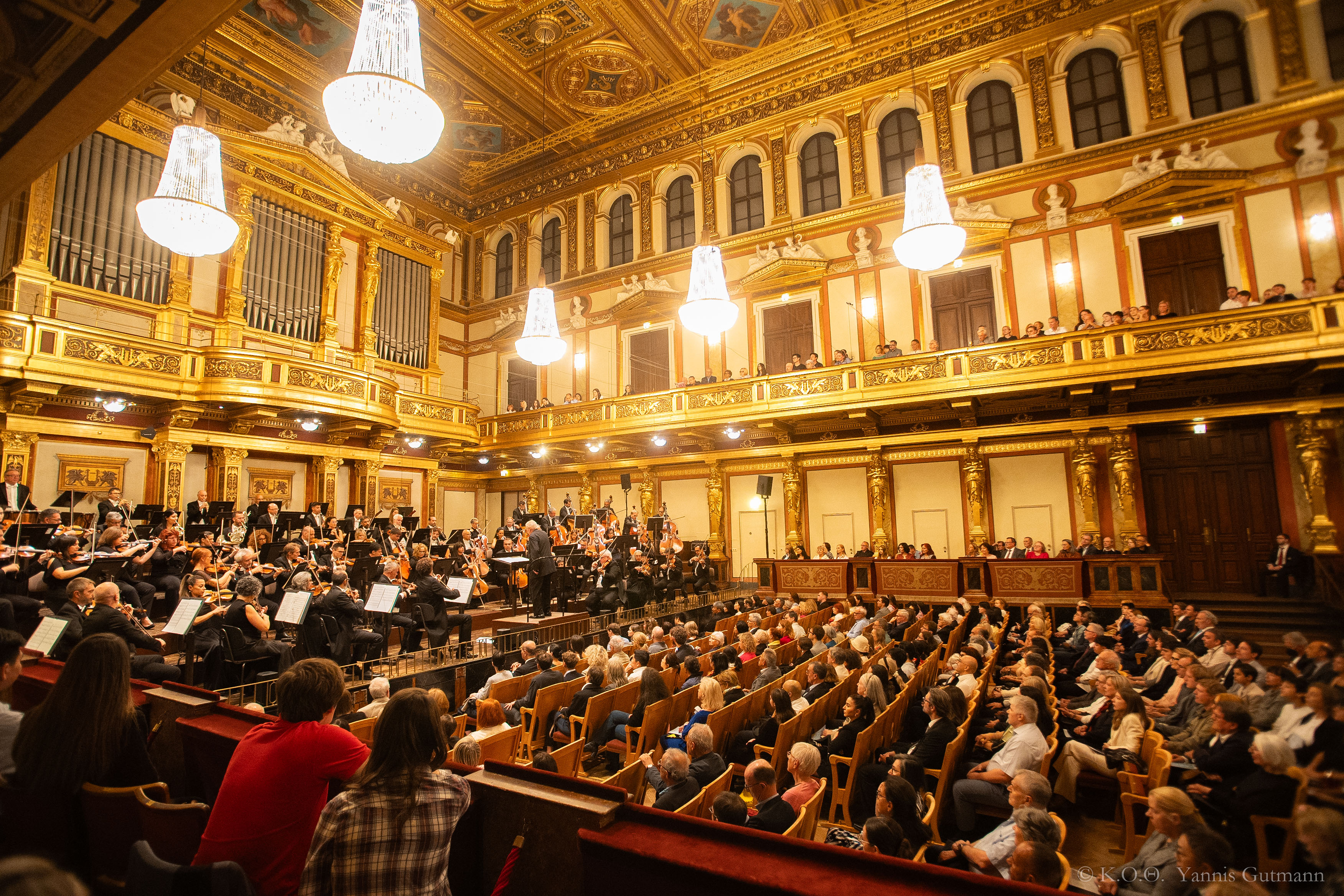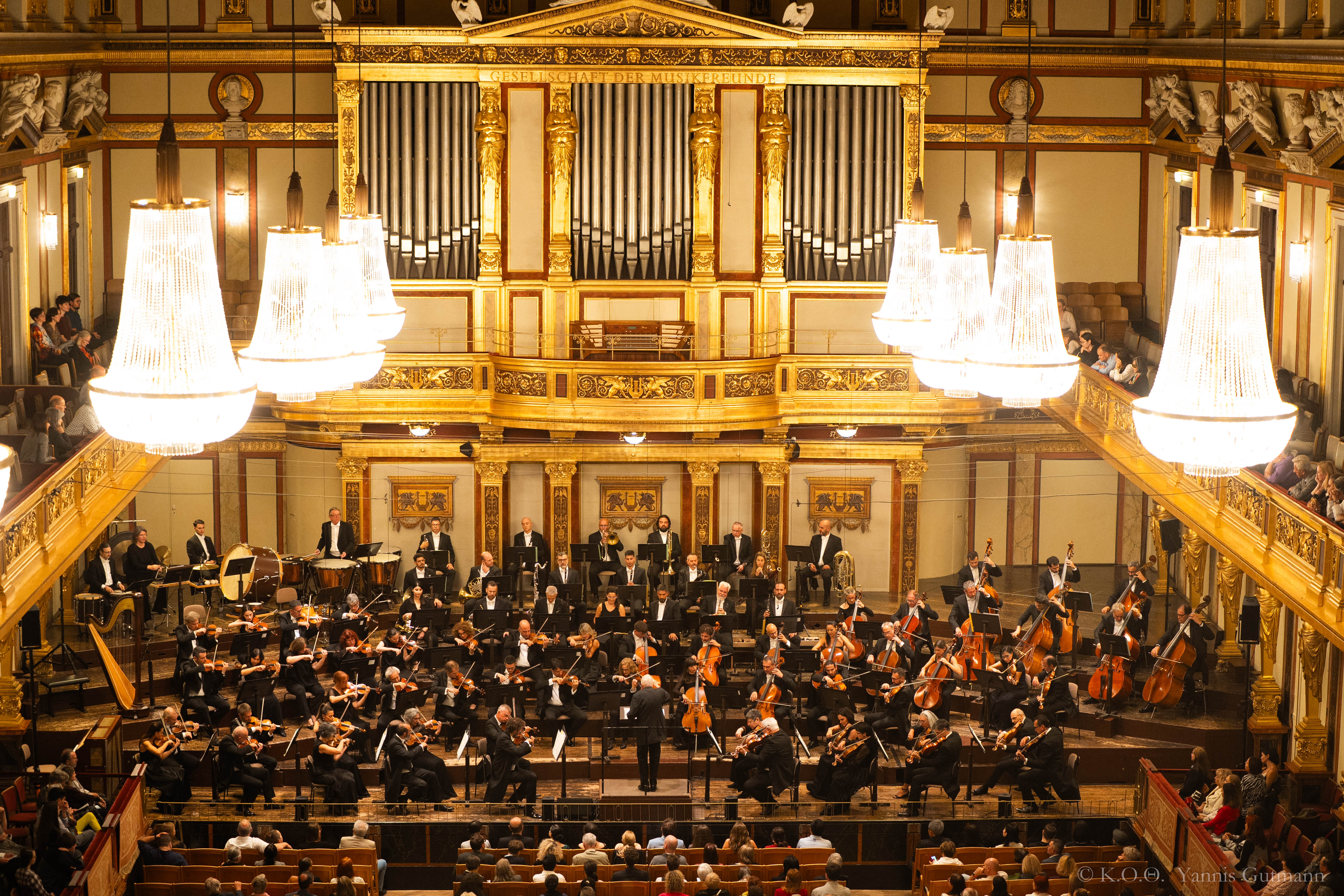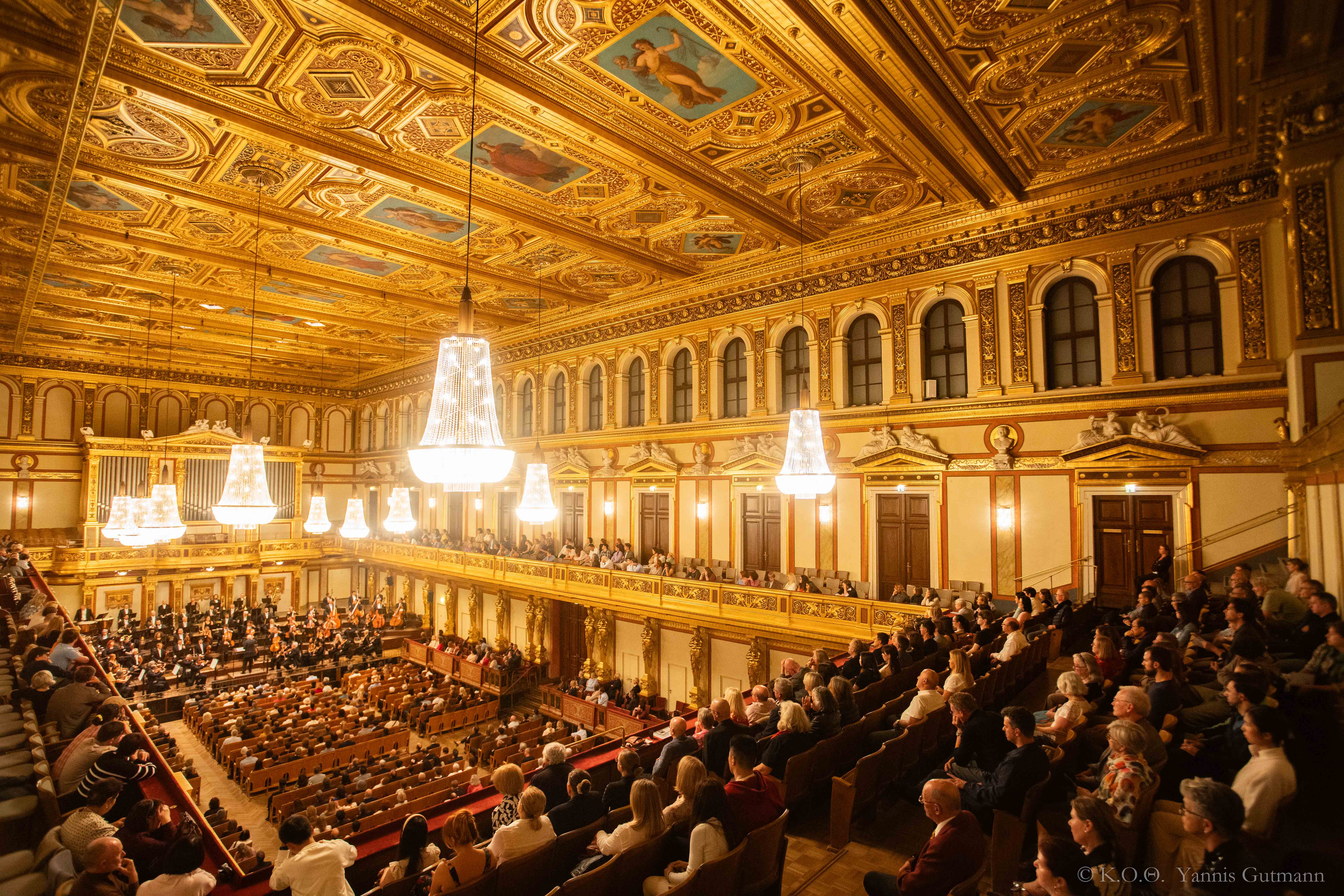Walking through Vienna, one will surely encounter at every turn a place full of history, where immortal music was born from the greatest, throughout the centuries. From the Beethoven Museum, Mozart's House, the Strauss Monument and the Brahms Monument, to the Schoenberg Foundation, the Concert Hall with its 600 different concert halls, such as the sought-after 'Mozart' and 'Schubert', among others, or the famous opera house, where Mahler excelled as director, and which has hosted iconic performances over the years.
Dominating all of this is the historic Musikverein hall, which was built with the donation of Nikolaos Doumbas, a merchant and benefactor from Vlasti, Kozani, in the neoclassical style of ancient Greek temples. This hall has one of the world's top acoustics and attracts millions of television viewers every year, from every corner of the globe, for the Vienna Philharmonic's established New Year's Eve concert, while attracting music lovers from all over the world for a unique experience in its spaces.
In this infamous Golden Hall where every sound is heard crystal clear, the Thessaloniki State Symphony Orchestra appeared before the highly demanding Viennese audience, which came en masse and with particular interest, since the occupancy reached 80%. The Thessaloniki State Symphony Orchestra won over this demanding audience from the very first work of the program, the colorful and full of Greece 'Dodecanese Suite No. 1' by Yannis Konstantinidis, since the warm and prolonged applause and the broad smiles of the spectators showed that they were immediately convinced of the value of the ensemble they had in front of them. Everything now foreshadowed an evening full of emotions.
This is exactly what happened next, through the ever-changing sound wanderings of the program. Next were the variations on a rococo theme by Tchaikovsky, with the soloist the extremely talented Austrian cellist Jeremias Fliedl, who with his fresh perspective and explosive temperament gave his compatriots a wonderful interpretation of the work and was rightly praised. Shortly before giving the audience an encore with Bach, he stated that it was a great honor for him to appear in this particular hall with this great orchestra, as he described the TSSO, with the audience emphatically agreeing by applauding both.
In the corridors of the hall, during the intermission, it was now clear from the discussions that the Viennese were excited by the concert, with the Greeks of the diaspora proud of the symphony ensemble from their homeland and sending greetings through the people of the TSSO to every corner of the country.
The second part began with a greeting by the pre-eminent expert on the ancient Greek lyra, Dr. Nikos Xanthoulis, who urged the audience to look around them, to see everywhere, in the statues and frescoes of the hall, the ancient Greek lyra. The difference from the lyra he held in his hand was, as he said, that those were silent, while his was alive and made sounds. After explaining the ways in which this particular instrument produces sounds, he played a little so that the sound of an ancient Greek lyre could be heard for the first time in this temple of music. The audience was mesmerized by its sound and this was followed by the world premiere of the 'Ballad of Ephesus' written by the famous Turkish pianist and composer Fazıl Say, for the TSSO and Nikos Xanthoulis, with the aim of presenting it on this particular evening.
The main part of the program concluded with Shostakovich's 'Ninth Symphony', on the occasion of the 50th anniversary of his death, a work that requires from every symphony orchestra the maximum degree of ability in each of its instrument groups. Conductor Thomas Sanderling, a protégé and personal friend of Shostakovich, was the ideal choice to confidently lead the TSSO in a exciting performance, with the audience responding to the end with apotheosis.
However, this brilliant evening of triumph for the Greek orchestra was not yet complete. The conductor informed the audience that they would also be treated to... dessert, as he said, with part of Antonis Sousamoglou's new work 'Feast in Vlasti' in honor of Nikolaos Doumbas, of course. The Viennese responded at the end with a five-minute (!!) apotheosis, rewarding the protagonists for what they heard, to close in the best way and absolutely fittingly one of the most golden and historic pages in the history of the TSSO, in a golden and historic concert hall.
The event was honored with the presence of the Minister of Culture of Greece, Ms. Lina Mendoni, the Greek Ambassador to Austria, Mr. George Iliopoulos, the Cypriot Ambassador to Austria, Mr. Andreas Ignatiou, representatives of the Austrian Ministry of Foreign Affairs, a representative of His Eminence Metropolitan of Austria, His Eminence and Exarch of Hungary and Central Europe, Mr. Arsenios, representatives of organizations, Greek Communities and teachers of the Hellenic National School of Vienna.
Ms. Mendoni stated after the event to the press representatives:
“The Thessaloniki State Orchestra appeared in one of the most emblematic music venues in the world, in the historic “Golden Hall” of the Musikverein in Vienna. Its presence constitutes a top cultural event and at the same time a moment of special pride for our country. This historic hall, which is inextricably linked to the world musical tradition and bears the stamp of the Greek benefactor Nikolaos Doumbas, welcomed for the first time in its history the sound of the ancient Greek lyre, through the interpretation of Dr. Nikos Xanthoulis. The fact that our Orchestra found itself before an audience, demanding and educated, winning its acceptance and enthusiasm, confirms its qualitative appearance. For Greece, which is internationally recognized for its cultural heritage, the time has now come to join the world cultural map and for its cultural institutions, for their productions, for the artists, for the people who truly work with absolute dedication for the extroversion of modern Greek culture. Investing in the revival of the Greekness of every form of art is a practice that contributes to the further recognition of the great diachronicity of Greek art but also to the recognition of Greek artists themselves. The appearance of the TSSO is a strong demonstration of this vision of extroversion and internationalization that we have consistently served in recent years with the aim of bringing Greek culture to the forefront of major world stages. Warm congratulations to all the contributors for this historic moment.''
The project is implemented in the context of the National Recovery and Resilience Plan (Greece 2.0) and is funded by the European Union - NextGenerationEU
